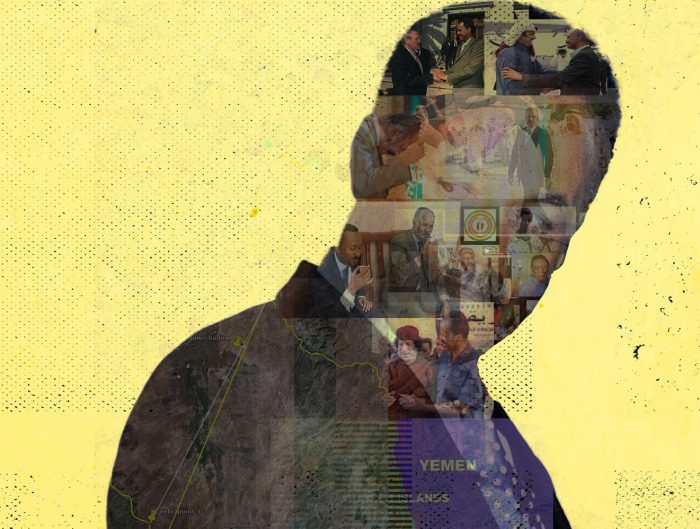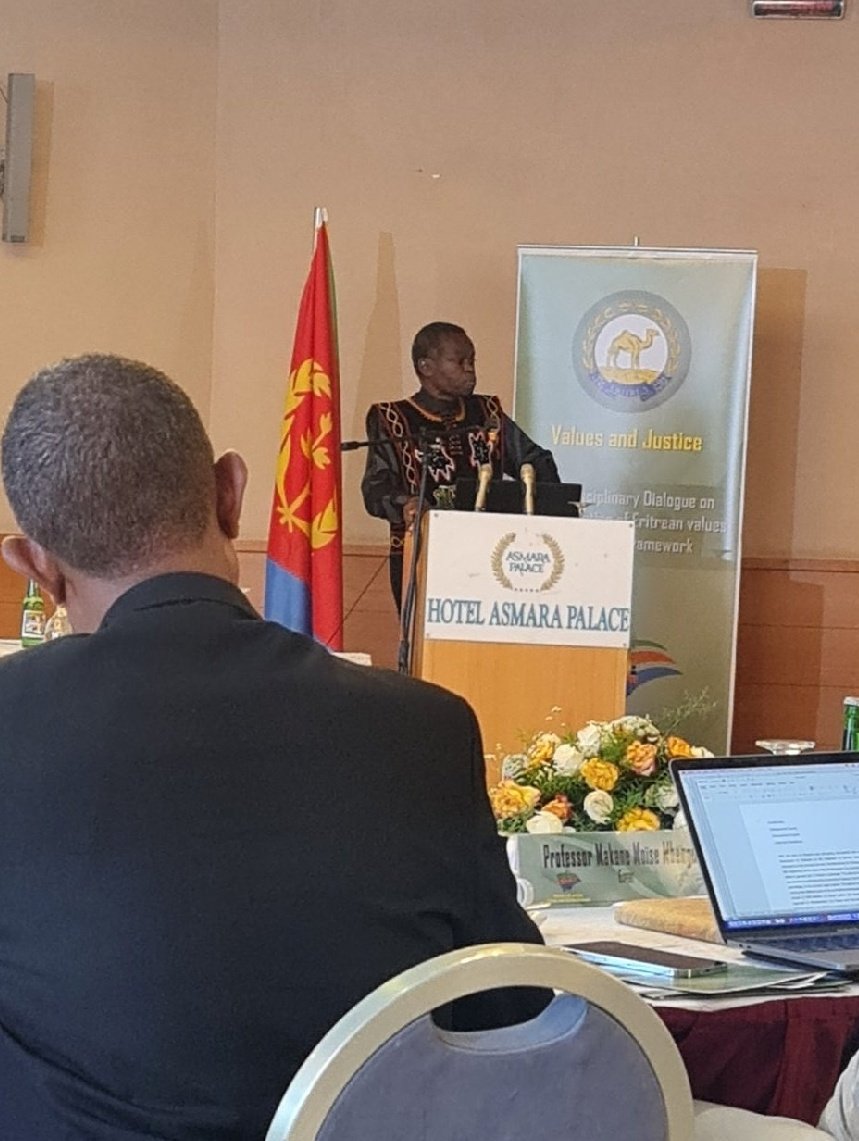And, in that regard, it has accepted recommendations to join conventions on broad themes and then rejected or turned a deaf ear to specific calls applicable to it. For example, the Eritrean government has agreed to accede to treaties and conventions on human rights and torture; and covenants on civil and political rights, freedom of conscience and religion. But then, when its called upon to deal with its own specifics, it uses a combination of: denial (it didn’t happen); grudging acceptance (it sorta happened but we are fixing it); and, belligerence (whether it happened or not is none of your business.)
The government counts on the international institutions’ sheer exhaustion and/or institutionalized short memories. The case of the European Development Fund (National Indicative Program, or NIP) is a case in point. In 2015, as part of its targets for donating 200 Euros over 5 years, the European Union set a new baseline year (2015) for the Eritrean government to comply with the recommendations of the UPR, and then it said that it will leave it to the Eritrean Ministry of Justice and Ministry of Foreign Affairs to monitor themselves. Meanwhile, the United Nations has been recommending to the Government of Eritrea that it improve its human rights record, release or bring to court political prisoners, and improve Eritrea’s civil rights and civil liberties since 2003. And the UN is likely to publicize the Commission of Inquiry’s damning report on the government’s human rights record next month.
In other words, the government of Isaias Afwerki is where it has been for the past 15 years: between forces (NGOs, GOs, journalists, think tanks) who think that engagement results in improved behavior and those who think engagement is another word for appeasement and rewarding bad behavior. Here is one example of Eritrea in the middle of the UN and the EU: between forces of accountability, and forces of “reset”. The “engage”, “reset” camp has been pressing that button, with no results, for 15 years now:
| UN HRC - UPR Recommendation (2014) - HRC/26/13/Add.1 | HRC Members Sponsoring Motion | Government of Eritrea's Reply |
|---|---|---|
| Ratify the international human rights instruments. which it is not yet a party to. | (Chad) | None |
| Ratify Convention against Torture and Convention on Enforced Disappearance with their Protocols and the ICCPR optional Protocol. | (Lithuania, Uruguay, Brazil, Japan, Portugal, France, Estonia, and Czech Republic) | None |
| Ratification of Rome Statute and its harmonization with national legislations and cooperation with the ICC. | (Croatia, Estonia, Latvia, Romania, Slovakia) | None |
| Withdraw existing reservations to ICCPR and ratify both ICCPR Optional Protocols. | (Estonia) | None |
| Expeditiously and fully implement the Constitution adopted in 1997 and strive for earliest adoption of a penal code and criminal procedure code as well as civil code and civil procedure code in accordance with international standards and provide clearly in new legislation for freedom of expression, assembly, movement, religion and belief. | (Slovakia, Sweden, Australia, Somalia, Namibia, Switzerland, UK and Spain and USA) | The Civil and Criminal Codes with their procedural codes as well as laws relating to freedom of expressing, assembly movement, religion and beliefs are already in place. A new constitution is to be drafted. |
| Establish and strengthen an independent Human Rights Institution and standing committee. | (Ghana, Indonesia, South Sudan, Algeria, Tunisia and Thailand) | This will be seen with the new constitution |
| Immediately lift the state of emergency, implement the 1997 Constitution and hold free and fair elections with international monitoring. | (Germany, Czech Republic) | there is no state of Emergency and a constitution is to be drafted. |
| Modify the law of national services and end indefinite national service, a phased demobilization, allow substitute service for conscientious objectors, and ending the people’s militia. | (Norway, USA, Spain, Croatia, Germany, UK, Austria and Canada and Italy) | None |
| Abolish military conscription and compulsory military training, particularly for children. | (Switzerland, Australia) | No child is recruited in the military |
| Take appropriate steps with a view to releasing all imprisoned conscientious objectors without delay. | (Croatia, Spain) | There are no conscientious prisoners. |
| Standing invitation to the UN Special Rapporteur on human rights in Eritrea and to all other UN special procedures mandate holders, and cooperate fully with the OHCHR. | (Republic of Korea, Germany, Norway, Romania, South Sudan, Togo, Italy, Montenegro, Sweden, Portugal, Namibia, France, Australia, Botswana, Netherlands, Portugal, Tunisia, Latvia, Somalia, Uruguay, Ireland, Portugal, Czech Republic, Brazil) | Can only be seen case by case but country specific mandates are not accepted, Eritrea’s cooperation with international community should not be linked to the Special Rapportuer on Human Rights in Eritrea. |
| Accede to the request of the Special Rapporteur on the promotion and protection of the right to freedom of opinion and expression, introduced in 2003 and renewed in 2005, to visit the country . | (Belgium) | None |
| On LGBT persons. | (Italy) | None |
| Abolish the death penalty. | (France, Spain, Montenegro) | None |
| Put an end to the widespread use of torture and other cruel, inhuman or degrading treatments as well as to arbitrary and extrajudicial executions. | (Djibouti, Tunisia) | There is no such practice in Eritrea |
| Guarantee the physical integrity of all prisoners, improve conditions of detention in accordance with international standards and allow unhindered access by international monitors to all detention facilities. | (Slovenia) | Physical integrity of prisoners is guaranteed. Invitation will be case by case. |
| Bring to an end inhumane detention conditions, release persons detained for exercising their freedom of expression respect and ensure that all detainees are treated in accordance with international human rights standards. | (Germany, Norway and Sweden) | Detainees are treated humanely. |
| Be accountable for all the political prisoners, in particular the members of the “G-15”, and release them. | (Djibouti, Spain, France, USA) | None |
| Allow the International Committee of the Red Cross (ICRC) to visit the places of detention and to visit prisoners of war from Djibouti. | (Djibouti, Somalia) | None |
| Modify the law of national services and end indefinite National Service, migration and human trafficking. | (France) | None |
| Release or bring before a court all persons detained without a charge and to respect international standards in the treatment of detainees. | (Austria, Germany, Switzerland, Norway) | None |
| Lift severe restrictions on freedom of expression, both online and offline, permit establishment of independent media outlet. | (Czech, Estonia, Austria and Belgium) | None |
| Take further measures to ensure protection of property rights, pursuant to international standards, including the provisions those provided by art. 14 and 21 of the ACHPR and art. 5 of the CERD. | (Italy) | None |
| Put an end to the obligation for children to follow their last year of school in the military camp of Sawa. | (Belgium, Luxembourg and Portugal) | None |
| Ensure safe repatriation and reintegration of Eritrean nationals without any fear of persecution in accordance with Eritrea’s obligations under international human rights law and allow for international monitoring. | (Germany) | Safe repatriation is guaranteed with no prosecution. |
| Develop an institutional programme in partnership with the Eritrean Diaspora and local communities to develop programs for production, infrastructure and social development, eliminating the fee for residing outside of Eritrea. | (Mexico) | None |
| Address concerns regarding the promotion and protection of human rights expressed by the Human Rights Council in its resolutions. | (Namibia) | None |
| Investigate all pending reports of enforced or involuntary disappearances and punish the perpetrators of these crimes. | (Chile) | The GOSE has no pending reports of enforced and involuntary disappearances. |
| Eritrea-EDF 11 National Indicative Programme (NIP) - (2015) | European Union | Number of agreed UPR recommendations operationalised Baseline: 0 in 2015 Target: 50% of agreed UPR recommendations operationalised by 2019 Coordination mechanism put in place and adhered to Baseline: 0 Target: 1 Coordination mechanism established and adhered to by 2018. Means of Verification: MoFA and MoJ Reports |





Leave A Reply